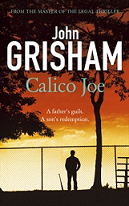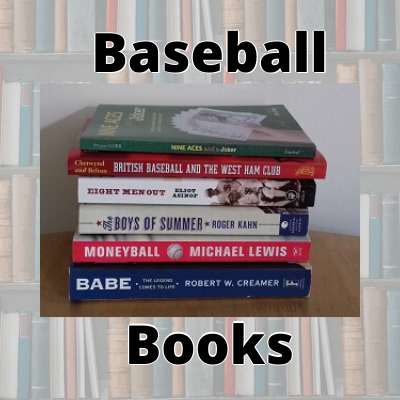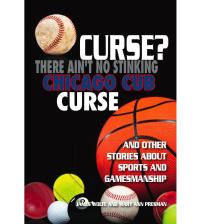 (Hodder & Staughton, 2012), 198 pages.
(Hodder & Staughton, 2012), 198 pages.
The MLB Battlegrounds event in Hyde Park earlier this month resulted in me receiving a number of emails from newcomers to the sport.
Whilst my Baseball Basics for Brits series answered some of their queries, they deliberately don’t go too far into explaining the game on the field.
There are plenty of videos and guides already available, but the main one that I always recommend to Brits comes from an unusual place.
Back in 2012, the best-selling ‘legal-thriller’ author John Grisham’s released his latest novel that happened to have baseball at the heart of it.
I’m always encouraged to see anything that might put the sport in front of the eyes of a few more Brits, hoping that popular culture can be used as a ‘way in’ among the sceptical masses in this country. Grisham has a legion of fans in the U.K. and, much as with Stephen King, many are likely to put their trust in the author and put their doubts about ‘that American sport’ to one side.
And, of course, it gives us baseball converts in Blighty the chance to get our hands on some baseball fiction a little easier than normal.
The ‘Calico Joe’ of the book’s title is a character called Joe Castle, a rookie phenom of the Chicago Cubs whose incredible introduction to the Major Leagues captivates a nation.
One of Castle’s biggest fans is an 11 year old called Paul Tracy, the son of a New York Mets pitcher struggling to hold onto his Big League job.
The novel is predominantly told from the perspective of Paul Tracy and it begins 30 years on from Castle’s rookie season. The memories from that year are brought flooding back by the news that Tracy’s dad is dying of cancer and his failing health compels his son to go on a journey of redemption.
Some of the comments I’ve read about the book by British readers have complained about the amount of baseball game detail included in the novel. Baseball fans naturally will be less perturbed by this, although it seems an unfair criticism to me in any case. There is a section in the book that follows Castle’s exploits on a day-by-day basis, but it’s a limited part of the overall novel, never gets too bogged down in minutiae and is an integral part of how Grisham conveys the nation becoming increasingly gripped by the developing story of this great rookie’s performances.
From a baseball fan’s perspective, where it lacks a little is that you can take a pretty good guess early on how things are likely to play out and what the subtitle – “a father’s guilt; a son’s redemption†– is going to refer to.
This is not a huge issue on its own; however it develops into a bit of a disappointment as the novel reaches its conclusion. I was left wanting more, but not in the positive ‘this is great, I don’t want it to end’ sense, more that I felt that there was a spark, a twist or a sudden change of pace missing.
That’s certainly not to condemn Calico Joe as a novel to avoid. It’s a decent story and is told with customary precision by Grisham mixing different time periods to good effect. I had high hopes that this would be a novel I would love and instead it’s merely one that I like, a book to pick up if available at a reduced price or to borrow from the library.
However, the best part about the British edition of the book is the 5,000 word introduction that serves as a perfect baseball primer for the uninitiated.
Grisham explains that he was encouraged to write it by his British publisher, noting that they were asking him to explain “aspects of the game that most American boys have absorbed by the age of tenâ€. That’s a great way of explaining the knowledge gap facing Brits when they first encounter the sport as presented from a North American source. There is so much that it is just assumed you will know because baseball is a part of the culture across the pond.
Grisham takes on the task with some trepidation (“I understood how daunting the task would beâ€), but does a great job in explaining the field of play, the different player positions, the rules of the game and how it is played. If you read it on its own you would guess immediately it had been written by a novelist and his style of weaving the details together – starting by asking the reader to imagine they are stepping up to home plate and describing what they will see – works extremely well.
Whilst it isn’t available to download on its own, you can read it in full via the Look Inside feature on the book’s product page on Amazon.co.uk. It’s as clear an explanation of the ins and outs of the sport that I’ve read and if you’re a baseball newcomer I’d recommend it as one of the best ways to learn the basics about how the game is played.
Have you read “Calico Joe� Feel free to share your thoughts in the comments section below. Can you recommend any other similar books? If so, let us know.


 ‘Curse? There ain’t no stinking Chicago Cubs Curse’ is a collection of eleven “stories about sports and gamesmanshipâ€. Four are by James Wolfe, two with a baseball theme and two on golf, and Mary Ann Presman supplies the other seven, exploring relationships and life to a backdrop of ‘Backyard Bocce Ball’, brothers playing basketball and Scrabble dating evenings among others.
‘Curse? There ain’t no stinking Chicago Cubs Curse’ is a collection of eleven “stories about sports and gamesmanshipâ€. Four are by James Wolfe, two with a baseball theme and two on golf, and Mary Ann Presman supplies the other seven, exploring relationships and life to a backdrop of ‘Backyard Bocce Ball’, brothers playing basketball and Scrabble dating evenings among others.